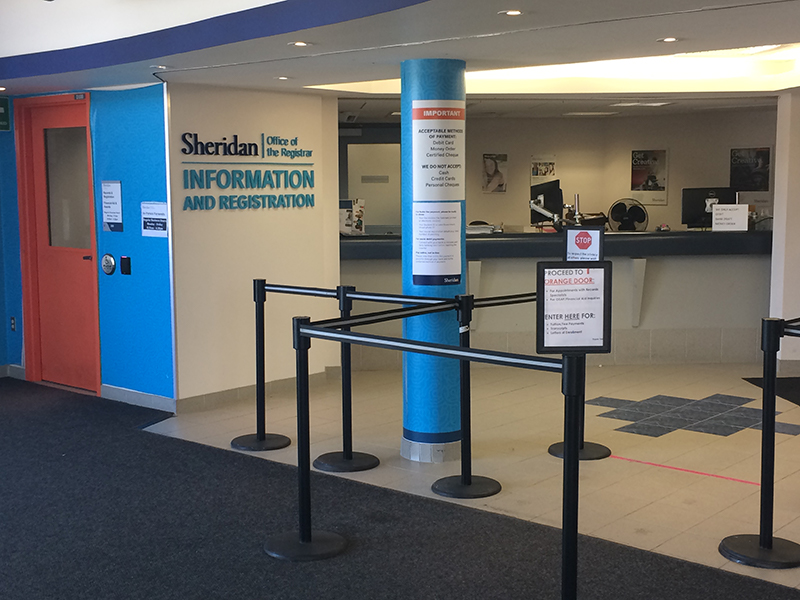STORY BY TOMMY DESORMEAUX

It is a new year at Sheridan, and as classes start this September students are grappling with the Ford government’s changes to OSAP qualifications.
The Ontario Conservatives put in place cuts to the provincial grant and loan program, citing a recent Auditor General report that warned its cost could reach $2 billion by 2020. The cuts, which were announced in January of 2019, significantly lowered the amount of funding available to college and university students in Ontario.
The threshold family income one needs to qualify for OSAP has been lowered from $175,000 to $140,000 but a larger portion of scholarships will now be loans rather than grants.
“Students can and should be fighting back,” says NDP Colleges and Universities Critic Chris Glover, pointing out that some “are being forced to switch to part-time studies and others are simply not able to return to school.”
The government’s decision caused protests across Ontario as critics claimed it would put a financial strain on the province’s student population and exacerbate the student debt crisis.
Backlash to the new policy was immediate and continued through the spring and summer. When the OSAP website released its funding calculations, #osap trended on Twitter with students and their families venting their frustration about Ford’s new rules.
“Students used the OSAP calculator in the Spring and expected a certain amount of funds, only to find their funding dropped significantly in the summer,” says Glover.
The Ontario Conservatives explained their decision by pointing out that Ontario students pay the highest tuition in all of Canada and that the OSAP system had become financially unsustainable.
“I was just counting down until he cut OSAP,” says Joel Camilleri, a Sheridan student affected by the cuts. The net amount of Joel’s funding did not go down but his ratio of loans to grants changed from 75/25 to 50/50.
Nate Wood’s funding did not change at all because of an uncommon admission status, but he admits that he too was angered by the cuts. He said, “It makes me feel bad talking to other students.”
